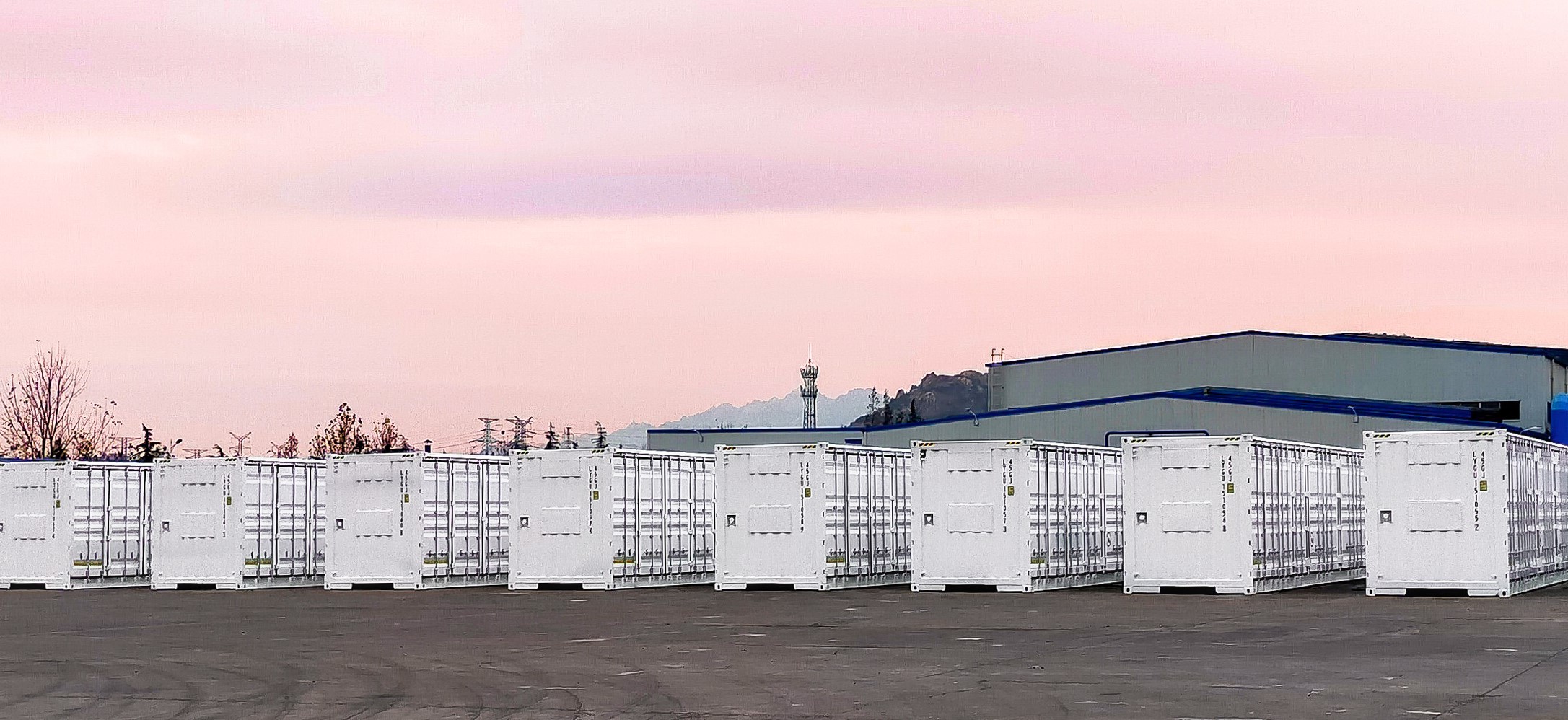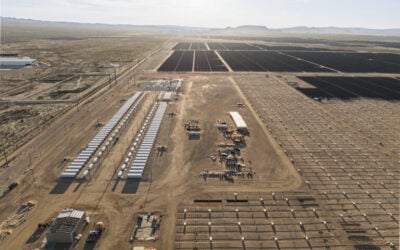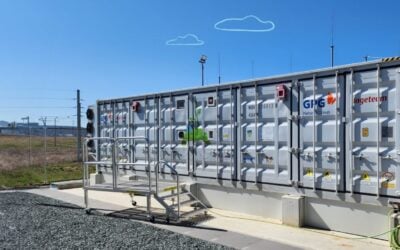
Mitsubishi Power Americas and Powin Energy have been appointed to retrofit 640MWh of batteries to solar PV plants in California, while a community energy group in the state has just signed a power purchase agreement for a 100MW solar plant with 150MW / 600MWh of storage.
Wholesale energy provider Southern Power said in February that it would add a 72MW / 288MWh battery energy storage system (BESS) at Tranquility Solar Facility, a 205MW project in California’s Fresno County, as well as 88MW / 352MWh of battery storage at the 200MW Garland Solar Facility in Kern County.
Enjoy 12 months of exclusive analysis
- Regular insight and analysis of the industry’s biggest developments
- In-depth interviews with the industry’s leading figures
- Annual digital subscription to the PV Tech Power journal
- Discounts on Solar Media’s portfolio of events, in-person and virtual
Southern Power operates the solar projects, which have been in commercial operation since 2016, on behalf of owners AIP Management and Global Atlantic Financial Group, which will also own the battery storage facilities. The batteries are expected to come online during this year.
With a power purchase agreement (PPA) in place for 20 years with local investor-owned utility (IOU) Southern California Edison (SCE) and the batteries set to provide flexibility services to the utility and electricity network operator CAISO, to help integrate variable renewable energy (VRE) into the grid, it was announced this week that Southern Power had awarded contracts to Mitsubishi Power Americas and Powin Energy.
Energy-Storage.news reported last August that the pair of technology and engineering services providers were selected by developer Key Capture Energy to work together on three large-scale standalone BESS projects in Texas. In a press release yesterday, Powin Energy CEO Geoff Brown said his company was pleased to continue its relationship with Mitsubishi Power.
“This award highlights the fact that large-scale solar PV paired with energy storage is cost competitive. We applaud Southern Power for taking this step toward helping California meet its clean energy goals with energy storage,” Brown said.
As with the Texas projects, lithium iron phosphate (LFP) chemistry batteries will be used at Tranquility and Garland. While the division of duties on the California projects was not revealed in yesterday’s release, at the Key Capture Energy Texas projects, Mitsubishi Power is serving as engineering, procurement and construction (EPC) partner as well as servicing the systems’ DC equipment, power conversion systems (PCS) and high-voltage substations, while Powin Energy is designing and integrating battery and battery management systems (BMS) as well as servicing the BESS equipment.
San Diego Community Power signs PPA for large solar-plus-storage plant
The state of California’s energy storage sector got another big boost yesterday with the news that San Diego Community Power (SDCP), a not-for-profit energy supply community choice group entered a PPA for Vikings Energy Farm.
SDCP signed the 20-year deal with an affiliate of renewable energy developer RAI International, which is headquartered in Silicon Valley. Construction begins on the project in Holtville, Imperial Valley, in autumn 2022. Vikings Energy Farm, named after a local high school’s mascot, is expected to begin commercial operations the following summer.
Pairing 100MW of solar PV with 150MW / 600MWh of battery, the system will support grid reliability and help the community choice group to meet its summer peak load. RAI International is expected to hire more than 250 unionised workers for the project at the height of construction while SDCP has the goal of procuring 100% renewable energy by 2035 or sooner, 10 years earlier than the state of California’s 2045 target for 100% renewable and zero-carbon generation for retail electricity.
SDCP is among a number of California community choice groups, known as Community Choice Aggregators (CCAs), that have formed up in the past few years. Able to utilise the transmission and distribution network infrastructure of the state’s main investor-owned utilities, their group members can choose which generation sources their CCA procures, with many leaning towards high shares of renewable energy. Several other CCAs have also brokered recent PPAs for large-scale solar-plus-storage facilities’ output.
All of the three projects mentioned above use four-hour duration BESS solutions. Yesterday, Energy-Storage.news reported that system operator CAISO believes the amount of energy storage on its transmission system will swell rapidly from about 250MW towards the end of last year to 2,000MW by the beginning of this August. CAISO said it expected the majority of those new batteries to be four-hour duration. Four hours is considered to be the upper limit of duration that can be cost-effectively served by lithium-ion battery storage while still having a significant impact on reducing peak loads experienced by utilities and networks and integrating renewables.
Incidentally, a group of CCAs have issued a request for providers to come forward to serve a procurement of up to 500MW of long-duration energy storage, one of the first global market signals to deploy storage that can store and discharge energy for at least six to eight hours and eat into more than the peak, making renewable energy fully dispatchable. Those projects will be targeting commercial operation by 2026, by which time experts and California planning authorities believe the state will require a rising share of that type of storage.






